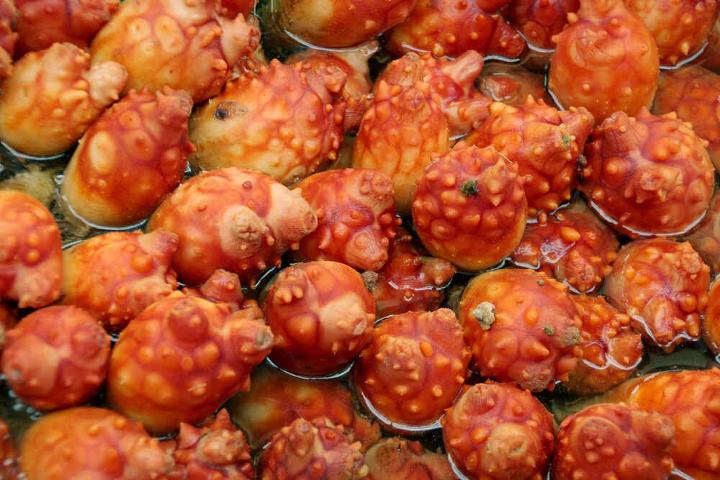There are plenty of health supplements on the market. However, a type of phospholipids is gaining ground in the field of brain health and aging. These phospholipids are known plasmalogens.
Plasmalogens have a unique structure that makes them capable of being effective in improving cognitive health. This article will delve into the significance of plasmalogens, their functions, potential food sources, and the implications of plasmalogen deficiency.
In this article, we’ll learn what is plasmalogen, its functions, potential food sources, and the implications of plasmalogen deficiency.
What is Plasmalogen?
Plasmalogens are phospholipids with vinyl-ether and ester bonds in the glycerol backbone at sn-1 and sn-2 positions, respectively. These additions give plasmalogens a distinctive structure, which could improve essential in oxidative stress protection and cell signalling.
Furthermore, these phospholipids can be found mainly in the nervous system. In this region, they’re responsible for maintaining cell membrane integrity.
Let’s focus on how and why these mechanisms work.
3 Functions of Plasmalogen Lipids on Brain Health
How is plasmalogen good for the human brain? Plasmalogens can play an important role in the body. There are three ways that it could help:
1. Membrane Structure and Stability
Neurons need well-maintained cell membranes for proper functioning. Plasmalogens can help maintain membrane fluidity and structural integrity.
As they bind to myelin membranes, their sn-2 acyl chain bends. As a result of closer compaction, membrane fluidity is decreased and stability is increased. This is one of the best roles of plasmalogens in our system.
2. Improved Cell Communication
Communication between cells in the brain relies on signaling pathways. Plasmalogens participate actively in cell signaling and influence various cellular processes.
This study suggests that retinal Müller cells and astrocytes communicate via membrane plasmalogens. Changes in cell coupling may influence perinatal vascular development.
3. Antioxidant Defense
Plasmalogens are known for protecting cells from oxidative stress. These phospholipids have antioxidant properties that could prevent DNA, proteins, and lipid damage and stress.
It has to do with the fact that the vinyl ether bond is oxidized, protecting the polyunsaturated fatty acids around it.
What Happens If You Have Plasmalogen Deficiency or Imbalance?
Plasmalogens are good for our well-being. However, suffering deficiencies and imbalances can affect your brain health. It can also speed up the aging process. The following are the possible plasmalogen side effects associated with imbalance or deficiency:
Cognitive Impairment: Lower amounts of plasmalogen are associated with neurodegenerative disorders. This includes dementia and Alzheimer's disease.
Inflammation and Metabolic Stress: Low plasmalogen levels can lead to inflammation and oxidative stress, which can accelerate the aging process.
Therefore, it’s imperative to maintain a stable plasmalogen level. In the subsequent sections, we’ll talk about how you can make that happen.
What Foods Have Plasmalogens?
Many foods contain plasmalogens, but some food sources contain higher amounts than others. Plasmalogen-rich foods can be a key component for maintaining optimal health, including brain function.
Here are some sources known to have relatively high levels of plasmalogen species:
Sea Pineapples
Sea pineapples, a type of sea squirt, are considered the top source of plasmalogen. As dietary sources for plasmalogen enhancement, these marine organisms offer the phospholipid’s potential benefits.
Fish and Seafood
Fatty fish, such as salmon and mackerel, are known for their omega-3 fatty acids and plasmalogen content. Sneaking seafood into your diet may contribute to maintaining healthy plasmalogen levels.
Livestock and Poultry
Land animals, like chicken and beef, have higher plasmalogen content than fish. Game meat is also a great source for these phospholipids.
You’ll have to consume an ample amount of these food sources to reach the ideal plasmalogen level. Many find it simpler to rely on supplementation.
What is The Plasmalogen Treatment?
As of right now, there is no pharmacological treatment for plasmalogen. Eating plasmalogen-rich foods and taking supplements can boost your plasmalogen levels.
Right now, scientists are exploring potential therapies for neurodegenerative diseases associated with plasmalogen deficiency.
What Are The Benefits of Plasmalogen Supplements?
Plasmalogen supplements may enhance cognitive function and brain health. There are plenty of supplements in the market, but you need to choose one that is high in quality.
Furthermore, seek the advice of a healthcare professional before taking supplements. Currently, their safety and efficacy need further investigation.
Find Healthy Ways To Boost Your Plasmalogen
Plasmalogens, with their distinct structure and functions, are important for maintaining your brain health. More and more research is being done to determine the functions of plasmalogen lipids in health and disease.
Consume plasmalogen-rich foods in the diet, such as sea pineapples and fatty fish. You can also choose a reputable supplement provider to increase your level of plasmalogen. But don’t forget to seek advice from your healthcare professional before starting on supplements.

What Is Plasmalogen? Exploring Its Role in Brain Health and Aging